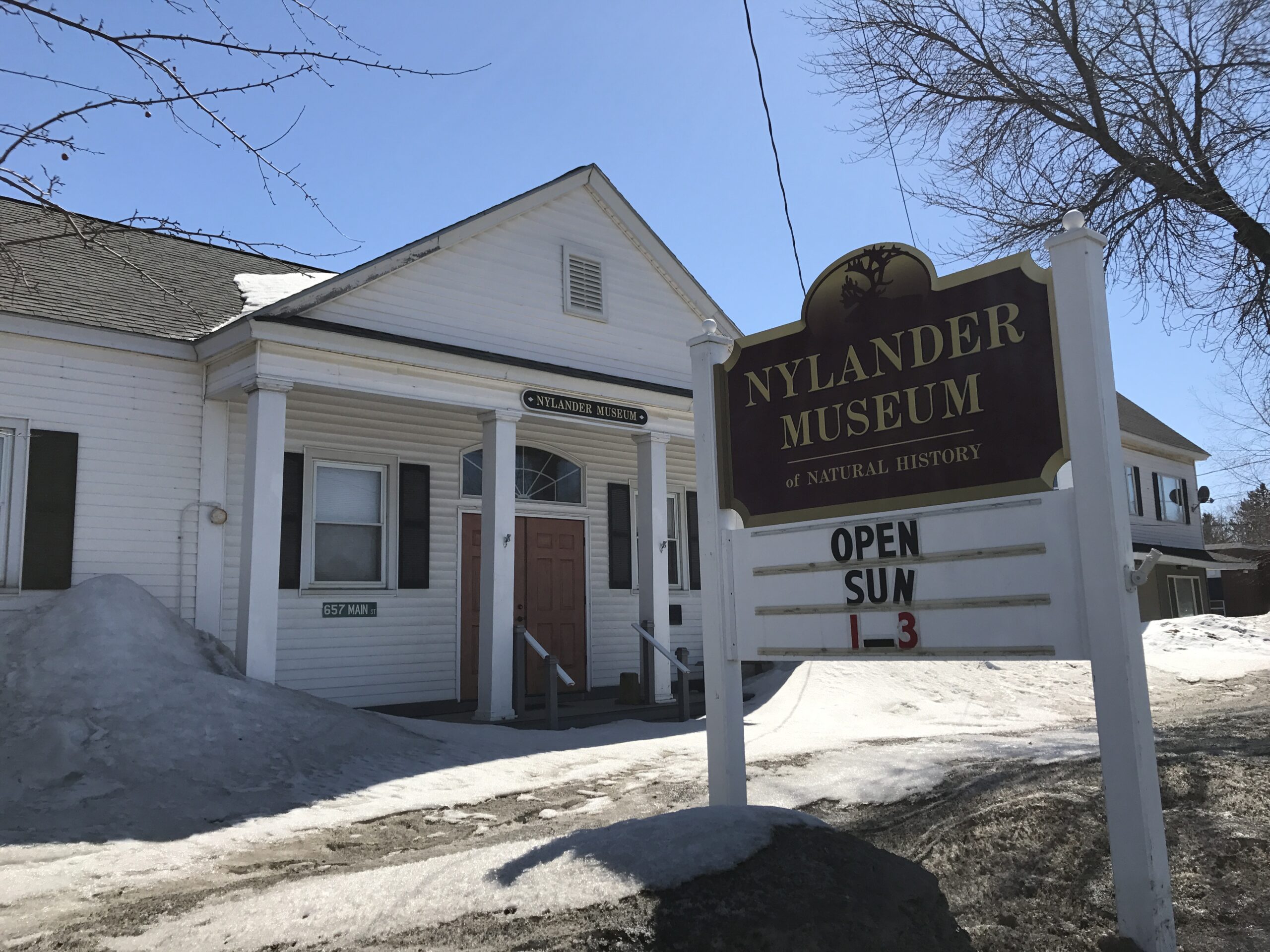
CARIBOU, Maine — While discussing the city budget on Nov. 13, councilors considered whether the community should continue funding the city-owned Nylander Museum.
“We still have around $12,000 in the Nylander [account] as far as I know,” said Councilor Joan Theriault. “For three hours a week and the amount of traffic that goes in there, I don’t believe taxpayers should be paying for that.”
The building previously housed both the Caribou Chamber of Commerce and Nylander Museum, however, councilors rejected the chamber’s funding request in the 2016 budget and the membership since has merged with the Central Aroostook Chamber of Commerce. The City Council subsequently agreed to fund the museum in the 2017 budget and let the Nylander board demonstrate the facility’s value to the community.
The museum houses the collections of the late naturalist Olof Nylander, including fossils, mineral specimens, insects and taxidermy, according to the nonprofit organization. It is open 1-3 p.m. Sundays with tours given anytime by appointment.
Members of the Nylander board have been actively working to recruit more members in addition to making regular appearances at Caribou’s Thursdays on Sweden festival, and holding special events outside of regular museum hours, such as a recent Halloween event featuring preserved bones and skulls, and staying open 1-3 p.m. for an entire week in April.
On Nov. 13, Theriault told fellow councilors that she had some concerns after noticing while looking at the museum’s Facebook page that the family of museum founder Olof Nylander were selling vegetables and hosting family reunions in the building.
Members of the Ketch family are direct descendants of the museum founder, and one of those descendants, Andrew Ketch, owns and operates Ketch Organics in Woodland. According to a post on the Nylander Facebook page, 10 percent of Ketch’s produce sales go toward the historical facility.
In August, Ketch set up a farmstand behind the building to sell produce in an effort to help fund the museum.
“It seems to be a family thing,” she said. “There’s vegetables being sold, and I don’t have a problem with that, but I think the general public needs to have a chance to do that too, and I don’t know if you want to go that far. They’ve also held a family reunion there and I don’t know if we want to open that up to everyone in the public.”
Theriault concluded that she thinks “it’s time to put [the building] on the market” as there isn’t “enough interest.”
“We could maybe move their collection to the new school or the rec center,” she said, “but I think it’s time for the Nylander to move.”
Councilor David Martin said, even if the Council voted to close the Nylander that night, the city would still have to heat the building throughout the winter.
“You could put it up for sale,” Theriault suggested.
Martin asked City Manager Dennis Marker if the $12,000 in the city budget set aside for the Nylander takes care of maintaining the museum throughout the year.
“That is the total budget for the Nylander,” Marker said, “which includes janitorial services.”
Theriault said that while the Nylander is a “charming little building,” taxpayers are spending “a lot of money for the activities it provides.”
Councilor McDonough’s concern is that the last time the City Council met with the Nylander board members, councilors “didn’t give them any real goals other than we’d like to see it turned around,” adding that they “did make some improvements.”
For instance, workers recently finished installing a new ramp to provide handicapped access to the facility.
Councilor Tim Guerrette suggested holding another meeting with the Nylander board members, and leaving the museum in the budget for the time being.
“We should find out exactly what they want to do,” he said, “and what we want to do. We need to talk with them, but we should leave the museum in this budget.”
Martin agreed, suggesting leaving money in the budget for now, and possibly trying to sell the building in March. He also suggested the possibility of “giving them the building so they could run it.”
“These are things that should be discussed with them,” he said. “We can let it sit for the next budget, and then talk about it in January.”
Theriault said that while the city should “take a good look” at the building, she did not “have a problem leaving the money in the budget.”




